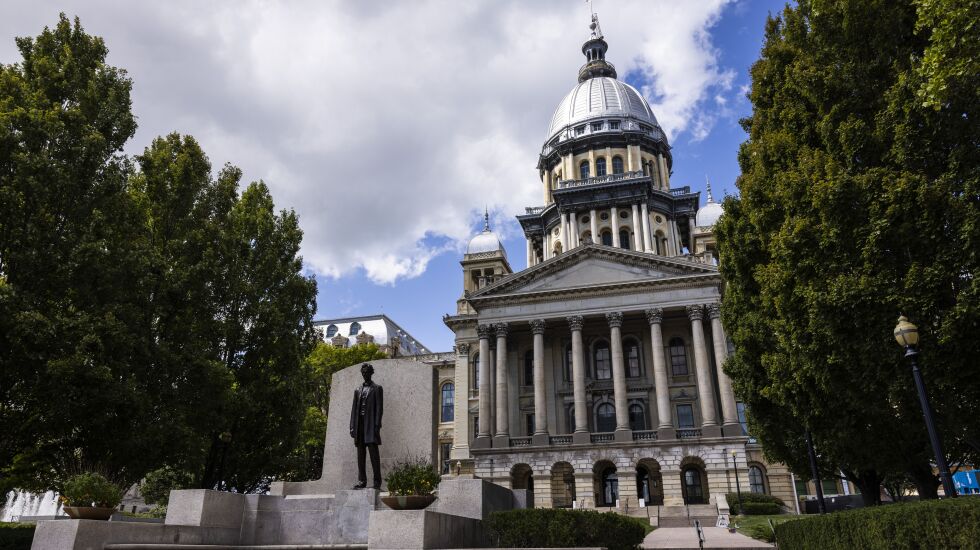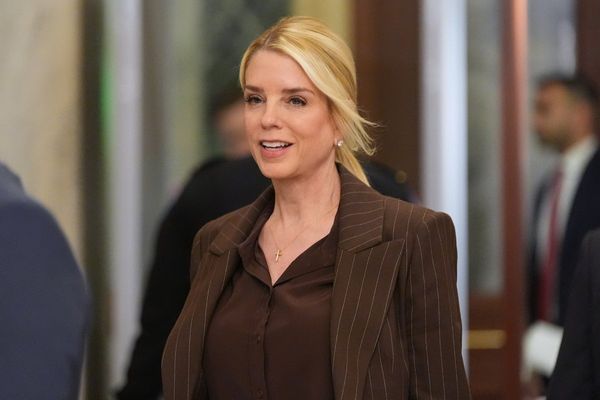
Back in May 2017, Chicago Police Supt. Eddie Johnson traveled to Springfield and promised a House committee that passing a criminal penalty enhancement bill he favored would drastically reduce gun crimes in his city.
The bill, SB 1722, was sponsored by then-Sen. Kwame Raoul, who would run successfully for attorney general the following year. It sought to establish higher minimum prison terms for people convicted of aggravated unlawful use of a weapon if they’d previously been convicted of various crimes. The bill would also increase penalties for unlawful use of a weapon by a felon.
Johnson was asked by committee member then-Rep. Christian Mitchell, D-Chicago, to estimate how many shootings, whether fatal or not, the legislature might prevent by passing the bill.
“I think over time, we will probably, we will cut it, cut it down in half, to half,” Johnson replied.
Asked if that might take three years, five years, 10 years, etc., Johnson said, “I don’t think it would take that long. So I would say we would probably start seeing a reduction in less than a year.”
Mitchell pressed further: “Okay. So in less than a year. But certainly, it’s safe to say in three years, if we pass this bill, we should see about a half reduction in the shootings and crime in Chicago?”
Johnson: “The gun violence. Correct.”
The logic behind this claim, Johnson explained, was that his data showed about 1,400 people were “driving most of the violence in Chicago.” And those 1,400 people were very likely to qualify for the enhanced penalties. Get them off the street for longer periods and crime would plummet.
The bill passed both chambers by wide margins and was supported by members who a few years later would lead the charge to reform the criminal justice system. It was one of the last times the General Assembly would pass a major penalty enhancement bill like that.
If you’re a sentient being, you know that Johnson’s confident prediction was wildly incorrect. Gun crimes did not plummet by 50 percent.
The law did lead to people being locked up longer, however. Research by the Illinois Sentencing Policy Advisory Council, an entity created by the General Assembly, showed that sentences rose after the law took effect in 2018.
“The mean sentence length for Aggravated UUW sentences with qualifying predicate convictions increased by about 5 months and the likelihood of a sentence of at least six years was about 3.2 times higher” than before the law took effect, the 2021 study found. And the average sentence length for UUW/felon sentences with predicate convictions, “increased by about 4 months and the likelihood of a sentence of at least seven years was about 2.5 times higher than before the effective date.”
Also of note, the prison sentences for UUW offenses that weren’t specifically covered by the 2017 law Johnson backed “did not change,” SPAC reported.
Bold promise falls short
In other words, while more people have clearly been sentenced to more time in prison because of this law (particularly Black men from Cook County), gun crimes have just as clearly not been reduced by half, or even close to half. While certain violent crimes fell for a couple of years after the law took effect in January 2018, they rose again during the pandemic. They’ve since started to wane but to nowhere near the levels that Johnson boldly promised.
I’m telling you this because the Senate is set to take up a bill (SB 853) that would extend several statutory sunset provisions, including those UUW changes made in 2017. The law had been set to expire in January 2024, but the proposal would extend that deadline for another year.
This could be an interesting debate and a political temperature check on the General Assembly. Illinois politicians have taken a lot of public heat over crime and the criminal justice reform bills they’ve passed. Allowing penalty enhancements to expire on repeat felony offenders, essentially letting them out of prison earlier than before, regardless of its impact on actual crime statistics would certainly be a bold move.
The bill is sponsored by Sen. Patrick Joyce, a conservative Democrat from Kankakee County who is up for reelection next year. The amendment containing the language unanimously passed Joyce’s State Government Committee.
This is an omnibus bill containing several sunset extensions. If the bill doesn’t pass, a whole lot of laws could expire at the end of December because the General Assembly won’t return until January at the earliest.
But opponents are vowing a fight. We’ll see.
Rich Miller also publishes Capitol Fax, a daily political newsletter, and CapitolFax.com.
Send letters to letters@suntimes.com







